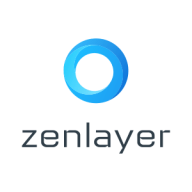

Zenlayer IP Transit and Debian compete in different categories, with Zenlayer providing network services and Debian being an open-source operating system. Debian seems to have the upper hand due to its robust features and perceived value.
Features: Zenlayer IP Transit provides flexible network scaling, low latency, and global reach, targeting organizations with significant international traffic. Debian is valued for its stability, security, and an extensive package repository, making it suitable for a wide range of software applications. Zenlayer's focus is on connectivity and network performance, while Debian emphasizes reliability and software versatility.
Ease of Deployment and Customer Service: Zenlayer IP Transit features straightforward deployment, supported by a dedicated customer service team that ensures seamless integration into existing infrastructures. In contrast, Debian's deployment is more intricate but supported by a large community and comprehensive documentation, emphasizing community-driven resources and extensive self-service options.
Pricing and ROI: Zenlayer IP Transit offers a competitive setup cost, resulting in significant ROI for businesses prioritizing global connectivity and speed. Debian incurs no licensing fees, being open-source, which makes it attractive for cost-conscious organizations seeking versatility. The contrast is Zenlayer’s structured pricing for high-performance network solutions versus Debian’s cost-effectiveness in adaptable software environments.
Debian is a versatile and reliable operating system widely used for personal computers, servers, and embedded devices. It offers stability, security, and extensive software packages to meet the needs of developers, businesses, and enthusiasts.
Known for its robustness, Debian supports a wide range of hardware architectures, making it suitable for both desktop and server environments. It provides a comprehensive repository of open-source software, allowing users to tailor the system to their specific requirements. Its strong focus on security ensures timely updates, keeping systems protected against vulnerabilities. Debian's community-driven development ensures transparency and continuity, contributing to its reputation as a dependable choice in various computing environments.
What are the most important features of Debian?
What benefits can users expect from Debian?
In the tech industry, Debian is frequently deployed in server environments thanks to its stability and security. Educational institutions often use it for educational labs due to its cost-effectiveness and flexibility. It is also popular in embedded systems for its lightweight and customizable nature, allowing for tailored solutions in IoT and automation sectors.
Easily provision dedicated connections to the world’s top clouds for improved latency, security, and reliability.
Premium global network optimized for low latency. Access points available in 50+ countries.
Redundant network topology. Redundant networking hardware. Multiple transit providers at each location. Proprietary blend of top ISPs in each region improves network performance
Connections to premium ISPs such as Telefonica, Etisalat, Telkom Indonesia, and more. 550+ network monitoring points with automated alerts. Dynamic routing ensures traffic travels on the best-performing path. Reduced network hops and latency. Expanded traffic paths for more resiliency. Lower transit costs passed onto our customers.
We monitor all Operating Systems (OS) for Business reviews to prevent fraudulent reviews and keep review quality high. We do not post reviews by company employees or direct competitors. We validate each review for authenticity via cross-reference with LinkedIn, and personal follow-up with the reviewer when necessary.